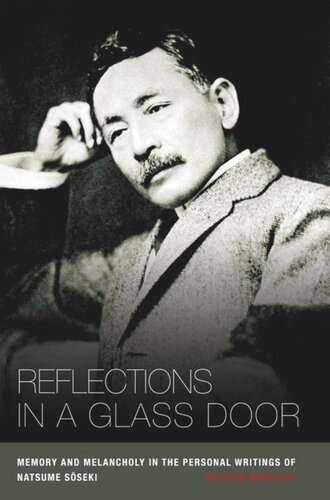

Most ebook files are in PDF format, so you can easily read them using various software such as Foxit Reader or directly on the Google Chrome browser.
Some ebook files are released by publishers in other formats such as .awz, .mobi, .epub, .fb2, etc. You may need to install specific software to read these formats on mobile/PC, such as Calibre.
Please read the tutorial at this link: https://ebookbell.com/faq
We offer FREE conversion to the popular formats you request; however, this may take some time. Therefore, right after payment, please email us, and we will try to provide the service as quickly as possible.
For some exceptional file formats or broken links (if any), please refrain from opening any disputes. Instead, email us first, and we will try to assist within a maximum of 6 hours.
EbookBell Team

4.0
86 reviewsMuch has been written about Natsume Soseki (1867–1916), one of Japan’s most celebrated writers. Known primarily for his novels, he also published a large and diverse body of short personal writings (shohin) that have long lived in the shadow of his fictional works. The essays, which appeared in the Asahi shinbun between 1907 and 1915, comprise a fascinating autobiographical mosaic, while capturing the spirit of the Meiji era and the birth of modern Japan.
In Reflections in a Glass Door, Marvin Marcus introduces readers to a rich sampling of Soseki’s shohin. The writer revisits his Tokyo childhood, recalling family, friends, and colleagues and musing wistfully on the transformation of his city and its old neighborhoods. He painfully recounts his two years in London, where he immersed himself in literary research even as he struggled with severe depression. A chronic stomach ailment causes Soseki to reflect on his own mortality and what he saw as the spiritual afflictions of modern Japanese: rampant egocentrism and materialism. Throughout he adopts a number of narrative voices and poses: the peevish husband, the harried novelist, the convalescent, the seeker of wisdom.
Marcus identifies memory and melancholy as key themes in Soseki’s personal writings and highlights their relevance in his fiction. He balances Soseki’s account of his Tokyo household with that of his wife, Natsume Kyoko, who left a straightforward record of life with her celebrated husband. Soseki crafted a moving and convincing voice in his shohin, which can now be pondered and enjoyed for their penetrating observation and honesty, as well as the fresh perspective they offer on one of Japan’s literary giants.